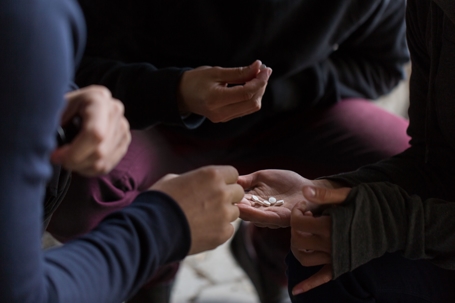North Carolina’s Controlled Substances Act can be found in North Carolina General Statute Chapter 90. There are several different sections outlining the violations of the North Carolina Controlled Substances Act that can also be found in Chapter 90. This article will explain six important things to know about drug related cases in North Carolina.
- Schedule Matters. Once the authorities have determined what a given substance is they must determine where it falls in the North Carolina Controlled Substances Act. This is important because the lower the schedule, often the more serious the charge. Schedule I controlled substances are the most heavily regulated and possession of any substance in this list is a felony. While Schedule VI controlled substances are the least regulated and simple possession of a Schedule VI controlled substance may be a class 3 (the lowest possible) misdemeanor. Some common examples are:
- Methamphetamine – Schedule II
- Cocaine – Schedule II
- Marijuana – Schedule VI
- Heroin – Schedule I
- Xanax – Schedule IV
- Oxycodone – Schedule II
- Weight is important. The amount of a particular controlled substance that is found is important. It can often be the difference between classes of misdemeanors or even between misdemeanors and felonies. It is also important to note that any substance used to cut or increase the amount is counted towards the weight of the substance. Furthermore, the authorities are also allowed to weigh certain containers and packaging items such as pill bodies/baggies and include those in the weight found.
- Field Tests v. Lab Tests. North Carolina Courts have recently held that while a field test may be admissible in court, meaning the District Attorney may use it in their case, they are not definitive proof that an officer may use to testify regarding the identity of a particular substance. It does however aide the District Attorney’s office, and the officer in question, in establishing probable cause. State v. Carter, 237 N.C. App. 274 (2014). Because of these rulings, it has become important for the District Attorney’s office to get substances tested in a lab. Again, the arresting officer oftentimes will not be able to testify about the contents of any lab reports or the results of any such test. Therefore, the state must also call the analyst who conducted the test in question. It is important to note that if the defendant is convicted or found guilty then the court may impose a lab fee during sentencing.
- Lab Tests. Because of the above rulings, it has become important for the District Attorney’s office to get substances tested in a lab. Again, the arresting officer oftentimes will not be able to testify about the contents of any lab reports or the results of any such test. Therefore, the state must also call the analyst who conducted the test in question. It is important to note that if the defendant is convicted or found guilty then the court may impose a lab fee during sentencing.
- Actual Possession v. Constructive Possession. One of the most common drug crimes is the crime of possession. North Carolina Courts have recognized two types of possession. First, is actual possession, this is the possession that most people think about where the substance is found physically on or about the defendant’s person. The second is constructive possession, and it is far more complicated. Constructive possession is proven by showing that the substance was in the care, custody, and control, of the defendant. Constructive possession allows the police to charge defendants even when the substance in question is not found directly on their person.
- 90-96 Program. Oftentimes defense attorneys are asked about the deferred prosecution found in NCGS 90-96, commonly referred to as the 90-96 program. This program allows certain offenders to receive a dismissal of certain drug related charges, both felony and misdemeanor level charges, after the completion of the program. The 90-96 program usually contains a term of probation, either supervised or unsupervised, as well as a substance abuse assessment and any recommended treatment or education. Several counties also require the defendant to undergo random drug screenings as well as a community service obligation.
At Jetton & Meredith, we have attorneys who practice in the field of criminal law and have helped thousands of clients with their criminal law needs. If you have been charged with a drug-related crime and have questions, it is now more important than ever to consult an attorney to make sure your rights are protected. Call our office today to set up a consultation with one of our criminal law attorneys to see how you can ensure your rights and future are defended.

